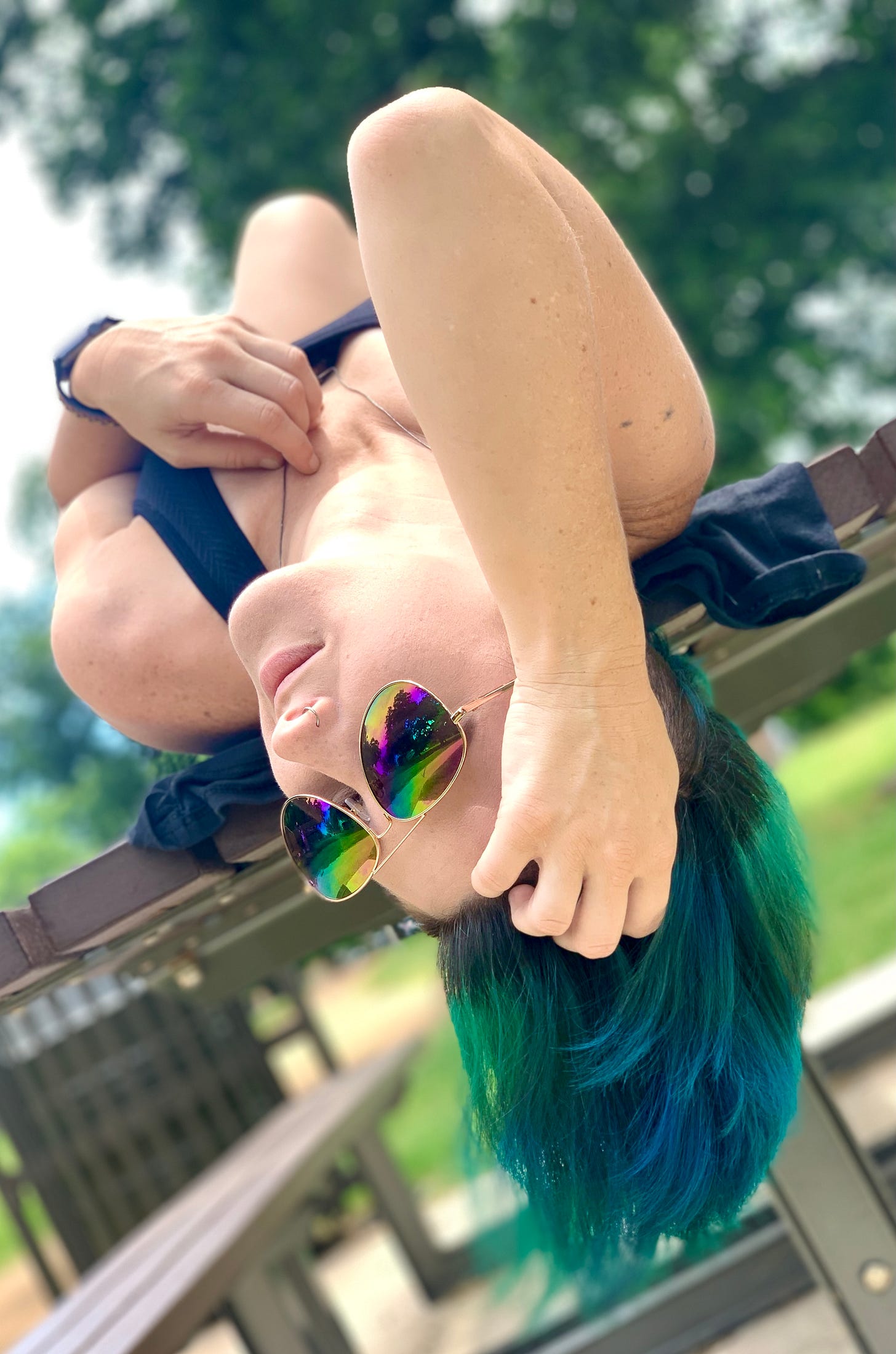Who am I? Rediscovering the Hidden Parts of Myself Through an Adult Autism Diagnosis
Learning I was Autistic was like being hit over the head with a stick, reversing a block in my mind that had obscured many of my childhood memories.
What do you do when you feel yourself slipping away?
What happens if you are lost, confused, and unsure of who you truly are?
How can you find yourself again when you've clung to an impossible, socially acceptable, normative "ideal" version of yourself (implanted in your mind by a society that looks down upon you)?
If you only know an ideal (who you are shaping yourself to be in the eyes of others, for others) because you've learned (falsely) that who you are at your core isn't good enough, how can you learn to accept the parts of yourself that have been banished, exiled and hidden away from the world?
How can you show those parts they are loved (especially if you don't know they exist)?
If you've only ever existed thinking parts of your core self are "bad" (and should always stay hidden), how can you learn to let those parts be seen?
Questions I've been asking myself for the past seven years since being diagnosed Autistic at the age of 29.

When I first found out I was Autistic, after a lifetime of feeling like some alien creature (a vampire, a fairy, an elf, and even a literal alien), but not knowing WHY I felt like a strange creature trapped among humans, it was a life-shaking moment.
Throughout my life, I'd "put away" pieces of myself (because of how people treated me when I let them show).
In my mind, these were "the bad parts"-the parts other people thought were strange, immature, rude, too much, or that caused people to treat me with scorn and disgust.
Learning I was Autistic was like being hit over the head with a stick, reversing a block in my mind that had obscured many of my childhood memories.
Suddenly, years of forgotten pain came pouring back to me, filling me with emotions and feelings I'd not felt in years - intense anger being one of the first emotions that came to me as I began pouring over my childhood and life up to that point with fresh eyes, viewing myself through the lens of Autism.
As a kid, I thought people had "good emotions" and bad ones.

Being Happy (and any variation of it, as long as it was "appropriate" for the situation) was a "good emotion" - except excessive happiness, which would make people pick on me.
Being sad or angry were "bad emotions."
Another emotion I, as a young person, decided must be "bad" was loneliness.
As a kid, I couldn't describe how I felt in terms of emotions. I could only describe if I was "bad" or "good"—meaning if I was having a "bad" or a "good" emotion.
As an adult, before being diagnosed Autistic, my ability to describe and understand my feelings hadn't changed much (though it is somewhat better now, thanks to the work I've put into understanding this area since my Autistic discovery).
Paid subscribers have access to more of this post. Thanks to every one of you for supporting my work.
Half-Priced Low-Income Subscription Available
If you are in need of a discount, please use the link below to get your subscription at a deep discount (because I don't want money to be an obstacle to people):
https://neurodivergentrebel.substack.com/LowIncomeDiscount
For readers experiencing financial hardship, please note that this offer is exclusively for you. This discount is offered on the “honors system” - I am not going to ask anyone for proof.
Please, kindly refrain from taking this offer if you do not fall under this category.
I hope this helps,
- Lyric
Keep reading with a 7-day free trial
Subscribe to NeuroDivergent Rebel’s Substack to keep reading this post and get 7 days of free access to the full post archives.




